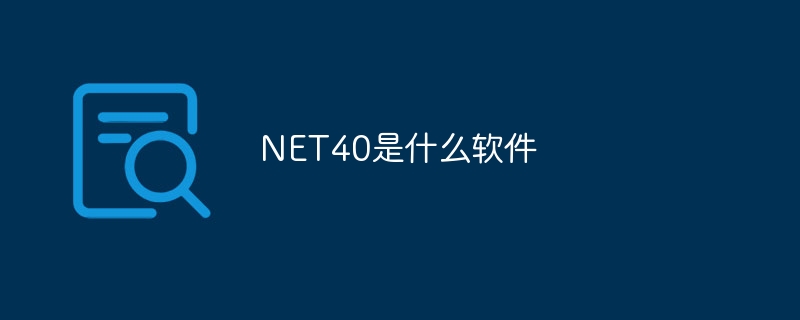.NET 4.0 is Microsoft's software development platform that provides a framework and toolset for building a variety of applications, including web, desktop, and mobile applications. Its features include: Parallel Programming Library (TPL) Parallel LINQ (PLINQ) Dynamic Language Runtime (DLR) Silverlight 5Windows Communication Foundation (WCF) 4.0. Benefits include: Performance improvements Code reusability Cross-platform support Developer-friendliness Security.

What is .NET 4.0?
.NET 4.0 is a software development platform developed by Microsoft that provides a framework and toolset for building all types of applications, including web, desktop, and mobile applications.
Features:
- Parallel Programming Library (TPL):A library for creating parallel and asynchronous code, thereby improving Performance of multi-core computers.
- Parallel LINQ (PLINQ):A parallel version of LINQ (Language Integrated Query) that allows parallel querying of large amounts of data.
- Dynamic Language Runtime (DLR):A runtime environment that supports dynamic programming languages such as IronPython and IronRuby.
- Silverlight 5:A cross-platform Web RIA (Rich Internet Application) framework that delivers interactive application experiences in a web browser.
- Windows Communication Foundation (WCF) 4.0:A framework for building service-oriented applications (SOA) that provides messaging, service routing, and security capabilities.
Advantages:
- Performance improvement:Parallel programming capabilities can improve the performance of multi-core systems.
- Code reusability:The framework provides reusable components and libraries, reducing development time.
- Cross-platform support:Silverlight applications can run on multiple platforms, including Windows, Mac, and Linux.
- Developer Friendly:Intuitive APIs and tools enable developers to build complex applications with ease.
- Security:WCF provides powerful security features to protect communications and data.
The above is the detailed content of What software is NET40?. For more information, please follow other related articles on the PHP Chinese website!






